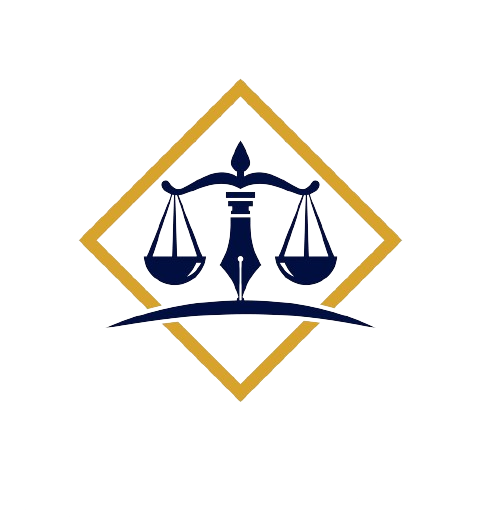Workplace law is a broad term that encompasses the legal rules and regulations that govern the relationship between employers and employees in various sectors and industries.
Workplace law covers a wide range of topics such as wages, working conditions, health and safety, discrimination, harassment, termination, and collective bargaining.
Workplace law aims to protect the rights and interests of both parties and promote a fair, productive, and harmonious work environment. So, I advise you to learn about workplace law, which will help you while you engage in your official work.
You never know when to hire an employment lawyer or a firm to resolve your issues. And condition, when you should be hiring.
In this blog, we’ll discuss all the important aspects related to workplace law, which will certainly in understanding the concept and having knowledge about the subject.
So, let’s dive in.
Overview Of Workplace Law
Workplace law is a broad field that includes all the rules that define how employers and employees interact.
It’s designed to promote fairness, ensure safe work environments, and balance power between workers and their bosses. It’s essential for everyone in the workplace, employers and employees alike, to have a solid grasp of these laws to safeguard their rights and effectively navigate their work settings.
Workplace Law And Its Significance

Think of workplace law. It’s not just a bunch of legal mumbo jumbo, but it’s the foundation that keeps things fair and safe between you and your boss.
And it’s not just about ticking boxes for compliance, it’s about respect and balance in the workplace. So, it’s pretty clear that its importance goes way beyond just following rules, don’t you think?
👉🏼 Workplace Lawyer To The Rescue: Beginner’s Quick Guide
Protecting Employee Rights
Workplace law empowers employees by safeguarding their fundamental rights. This includes:
✅ Freedom from discrimination: Protecting individuals from prejudice based on race, gender, religion, age, disability, se*ual orientation, and other protected characteristics.
✅ Safe working conditions: Ensuring employers prioritize safety by controlling hazards, providing training, and adhering to safety regulations.
✅ Fair compensation and benefits: Establishing minimum wage standards, overtime pay requirements, and access to benefits like health insurance and paid time off.
✅ Freedom of association: Allowing employees to join unions and collectively bargain for better working conditions.
✅ Due process in termination: Preventing arbitrary dismissals and providing avenues for recourse in unfair termination cases.
Promoting a Level-Playing Field
Sure, let’s rephrase that in a more academic style:
Workplace law serves as an essential mechanism that ensures fairness in the professional environment. It holds employers accountable for their actions, thereby establishing an equitable playing field.
This not only promotes a healthy work culture but also reinforces the fundamental rights of employees
This promotes:
✅ Transparency and predictability: Employers must follow established legal guidelines, providing consistency and clarity for employees.
✅ Reduced conflict and legal disputes: Clear legal boundaries minimize opportunities for misunderstandings and legal ramifications.
✅ Increased employee morale and productivity: When employees feel protected and respected, they tend to be more engaged and productive at work.
✅ Positive employer branding and reputation: Companies that adhere to workplace laws foster a positive work environment, attracting and retaining talent.
Responding to Evolving Challenges
You know, as our workplaces change with all the tech stuff and how society is shifting, the rules at work are also keeping up to deal with new issues. It’s like they’re trying to stay in the loop, you know?
✅ Protecting privacy in the digital age: Regulations on data collection, surveillance, and employee monitoring ensure respect for individual privacy.
✅ Accommodating diverse work arrangements: Laws on remote work, flexible schedules, and family leave to acknowledge the changing needs of the workforce.
✅ Addressing emerging forms of harassment: Legal protections extend to online harassment and cyberbullying, fostering a safe and respectful digital work environment.
Fostering a Just and Ethical Workplace:
At the end of the day, workplace laws play a crucial role in making sure the work environment is fair and ethical by…:
✅ Promoting equal opportunities: Encouraging diversity and inclusion by preventing discrimination and fostering a fair and equitable workplace.
✅ Protecting vulnerable workers: Safeguarding young workers, pregnant women, and individuals with disabilities by ensuring their rights and safety.
✅ Maintaining social responsibility: Encouraging ethical business practices and preventing exploitation of employees.
Workplace law isn’t just about laying down a bunch of rules to stick to; it’s more like a blueprint for creating a workplace that’s fairer, safer, and all-around more ethically aware.
Its importance goes beyond just ticking legal boxes – it’s about molding the overall quality of work life for countless employees and playing a part in building a society that’s healthier and fairer.
👉🏼 Ultimate Guide Employment Lawyer 🎓 [ Types, Career, Roles & More ]
What Are The Key Areas of Workplace Law ?

☑️ Anti-Discrimination Measures
These rules are in place to prevent discrimination based on certain characteristics like race, gender, religion, age, disability, and national origin. They cover everything from hiring and firing to promotions, pay, benefits, and various other aspects of employment.
☑️ Handling Harassment
Workplace harassment involves unwelcome behavior linked to protected characteristics that create a hostile work atmosphere. This can take the form of verbal, physical, or visual actions and can significantly affect an employee’s well-being and job performance.
☑️ Fair Compensation Regulations
These laws set the standards for minimum wage, overtime pay, breaks, and meal times. They make sure that employees are fairly compensated for their work and protect them from wage theft.
☑️ Ensuring Workplace Safety
Employers bear the responsibility of providing a safe and healthy work environment, free from potential hazards causing injury or illness. This involves adhering to safety regulations, implementing safe work practices, and providing necessary training and equipment.
☑️ Employee Perks and Benefits
Many employers offer benefits like health insurance, retirement plans, and paid time off. Laws often regulate the administration and accessibility of these benefits, ensuring fair and consistent application.
☑️ Leave Policies
Employees have the right to take time off for various reasons such as medical needs, family leave, or military service. Laws typically outline eligibility requirements and the duration of these leaves, ensuring job security and protection during the absence.
☑️ Navigating Employee Termination
While employers usually have the authority to terminate employees at will, there are exceptions. Laws restrict wrongful termination based on factors like discrimination, retaliation, or breach of contract.
How Do Workplace Laws Vary By Country or Region?

Workplace laws show substantial variations from one country or region to another, mirroring distinctions in cultural norms, historical backgrounds, and governmental priorities.
Here are some key areas where variation is often observed:
✅ Employment Contracts
Specific requirements: Different regions may mandate specific clauses in employment contracts, such as probation periods, notice periods for termination, or non-compete agreements.
Open-ended vs. fixed-term contracts: The prevalence of open-ended or fixed-term contracts can differ, impacting job security and employee rights.
✅ Employee Rights and Protections
Discrimination: The protected characteristics against discrimination may vary, with some regions including se*ual orientation, religious beliefs, or political affiliation.
Minimum wage and overtime pay: Minimum wage levels and overtime compensation calculations can differ significantly between countries.
Paid time off: The amount and types of paid time off, including annual leave, sick leave, and parental leave, vary greatly across regions.
✅ Working Conditions and Safety
Working hours: Regulations on daily and weekly working hours, breaks, and rest periods can differ.
Safety regulations: Specific safety standards and requirements for different industries may vary depending on the region.
Work-life balance: Initiatives such as flexible work arrangements or remote work policies can be implemented differently or have varying levels of cultural acceptance.
✅ Collective Bargaining and Unions
Unionization rights: Levels of unionization and employee rights to join and participate in unions can vary substantially.
Collective bargaining agreements: The scope and nature of collective bargaining agreements between unions and employers can differ across regions.
✅ Termination of Employment
Justification for termination: The grounds for which an employer can legally terminate an employee without notice can vary significantly.
Severance pay: Requirements for severance pay upon termination may differ by country or region.
✅ Regional Examples
European Union: EU directives set minimum standards for various aspects of working conditions, impacting member states’ legislation.
North America: The United States has a more “at-will” employment system, while Canada offers greater statutory protections for employees.
Asia: Singapore has highly flexible labor laws, while Japan emphasizes company loyalty and long-term employment.
Getting a grip on these differences is essential for businesses working in diverse regions and for individuals eyeing international job opportunities.
It’s a smart move to seek advice from legal resources or professionals to grasp the specific workplace laws and regulations that apply in your particular location.
☑️ Employment Contracts
Think of an employment contract as the foundation of a robust and equitable employer-employee relationship. It acts as a solid agreement, clearly defining the rights and responsibilities of both parties. More than just a piece of legal paperwork, it cultivates trust, provides clarity, and ensures a sense of security for both employers and employees.
☑️ Anti-Discrimination Laws
Workplace discrimination can wreak havoc on individuals’ careers, livelihoods, and overall well-being. The good news is that there’s a strong legal framework in place to tackle this injustice and foster a fair and inclusive environment for everyone.
☑️ Workplace Safety and Health
The laws governing workplace safety and health play a crucial role in safeguarding employees from work-related injuries, illnesses, and fatalities. By setting minimum standards for safe work practices, equipment, and environments, these laws ensure the well-being of employees across different industries.
☑️ Wage And Hour Laws
Wage and hour laws are pivotal in guaranteeing fair compensation and promoting a healthy work-life balance for employees. By regulating minimum wage, working hours, breaks, and overtime pay, these laws protect workers from exploitation and foster a level playing field for all.
☑️ Employee Benefits and Leave Policies
Employee benefits and leave policies are key elements in attracting and retaining talent, boosting employee morale, and creating a supportive work environment. Yet, navigating the legal landscape in these areas can be intricate, requiring a delicate balance between employer and employee rights.
☑️ Whistleblower Protections
Whistleblowers play a vital role in uncovering wrongdoing and safeguarding the public interest. Their courage to speak out against unethical or illegal behavior within organizations deserves protection and support. Fortunately, there is a legal framework in place to provide whistleblowers with essential safeguards against retaliation, fostering a culture of ethical conduct.
☑️ Employee Privacy Rights
With the continuous advancement of technology, the line between work and personal life is becoming more and more blurred. Achieving a balance between operational efficiency and employee privacy in this digital landscape requires a clear understanding of applicable laws and best practices.
☑️ Termination and Severance
Ending employment, though at times necessary, can be a complex and emotionally charged process. Maneuvering through the legal aspects of termination and severance demands an understanding of applicable laws and best practices to guarantee fairness and compliance.
☑️ Employer Compliance
Keeping up with the constantly changing terrain of employment laws can be challenging, but it’s vital for employers to stay compliant. This helps avoid legal pitfalls and ensures the well-being of their employees is safeguarded.
☑️ Emerging Trends and Changes
Workplace law is a dynamic realm, continually evolving with new laws and trends emerging almost daily. Staying informed about these developments is essential for both businesses and employees to effectively navigate the shifting landscape and make necessary adaptations.
Final Thoughts
Workplace law is a complex and dynamic field that regulates the rights and obligations of employers and employees in various sectors and industries.
It covers a wide range of topics such as remuneration, social security, working conditions, discrimination, maternity leave, termination of employment, data protection, employee representation, and industrial relations.
Workplace law aims to balance the interests of both parties and promote a productive, safe, and harmonious work environment.
In this blog, we have discussed the major legislations and principles that govern workplace law in India and provided some practical tips and examples for employers and employees to comply with them.

![Workplace Law [ Key Areas, Laws, Rights, Contracts & More ] https://www.employment-lawyers.us/ Employment Lawyers In United States](https://www.employment-lawyers.us/wp-content/uploads/2024/02/Red-and-Black-Dark-Gamer-Sports-YouTube-Outro-2-1536x864-1.webp)

![Ultimate Guide Employment Lawyer 🎓 [ Types, Career, Roles & More ]](https://www.employment-lawyers.us/wp-content/uploads/2024/02/Red-and-Black-Dark-Gamer-Sports-YouTube-Outro-1-1536x864-1.webp)